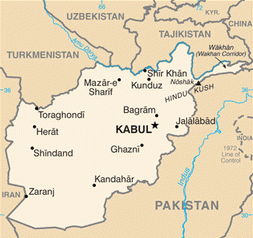Massive protests over the U.S. military’s burning of Muslim holy books have caused two dozen deaths in Afghanistan and has now spread to Pakistan, where anti-American sentiment has hit unprecedented levels.
 Afghan protesters tried to storm a U.S. consulate in Herat and march on NATO headquarters in Kabul on Friday in the fourth straight day of demonstrations, which ended up killing 24 people due to violent crowds and harsh attacks from Afghan security forces.
Afghan protesters tried to storm a U.S. consulate in Herat and march on NATO headquarters in Kabul on Friday in the fourth straight day of demonstrations, which ended up killing 24 people due to violent crowds and harsh attacks from Afghan security forces.
Afghan provincial spokesman Moheedin Noori said up to 50 people had been wounded in Herat, mostly by gunfire. Two U.S. troops have been killed in a shooting earlier in the week and four others wounded. German troops in northern Afghanistan have even withdrawn early from a military base because of the unrest.
Hundreds of Pakistani protesters took to the streets on Friday too, chanting “Death to America,” demanding that U.S. leaders resign and setting fire to a U.S. flag over the burning of Qurans in Afghanistan. Up to 300 people angrily demonstrated in the northwestern city of Peshawar, along with hundreds more in Islamabad and Karachi.
“The ugly face of America has been revealed with the desecration ofholy Koran,” a banner in Peshawar read. “There is just one remedy for America — jihad and only jihad,” the crowd in Karachi shouted.
Anti-American sentiment is extremely high in Pakistan, enflamed by reckless U.S. policies including a ruthless and bloody drone war, support for a corrupt kleptocracy in Islamabad, bombings of Pakistani outposts in November which killed 24 Pakistani soldiers, and a brutal war in neighboring Afghanistan.
President Obama has formerly apologized for the U.S. military’s burning of Qurans outside Bagram Airbase, but Afghans have only grown more angry, seeming to use this latest offense as a rallying point for ten years of U.S. war and abuse.


